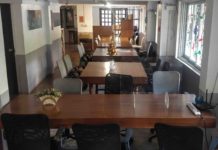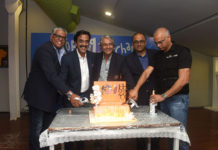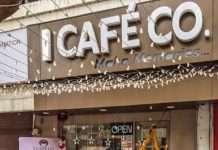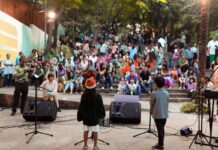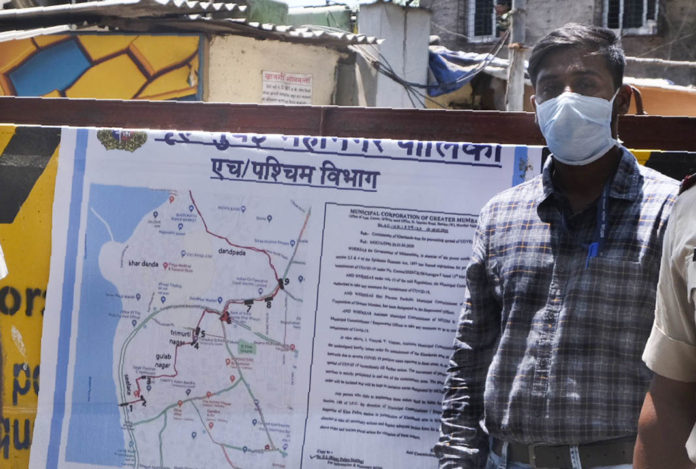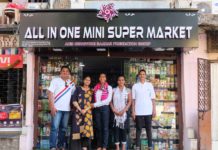“If this was just another day at work, I would be at my desk sifting through files or probably on a site inspection,” says Naik with a shrug. As a Junior Engineer (JE) in the Buildings and Factories Department of H-West ward, Naik’s job would involve identifying unauthorised structures in buildings around H-West and taking necessary action. It would also involve issuing factory licences. And finally, he would identify and inspect old, dilapidated structures, carry out structural audits and recommend the necessary action which included declaring structures unsafe and evacuating them.
These days, his job involves identifying and sealing buildings and areas that have confirmed Covid-19 cases. “We coordinate with the Medical Officer of Health (MOH) of H-West and get a daily update of Covid cases in our ward. The areas of Gazdhar Bandh, Khar Danda and Khotwadi come under my purview,” he shares.
Covid-19 quarantines are classified into slums and apartment complexes or buildings and accordingly, there are different standard operating procedure (SOP) to be followed. As anyone who has had their building quarantined, the Junior Engineer (JE) will visit the building, speak with the secretary of the building and inform them that the building will be sealed for 14 days. The JE will also provide the secretary with a list of grocery stores, medical stores, and even an Amazon representative’s number and in turn, let all these different vendors know that deliveries to this particular building will have to be only unto the gate. Arrangements for garbage pickups, sanitisation etc. will also be made. “However, since last week there has been a change in this protocol. We now no longer seal an entire apartment complex or building. We only seal that particular flat or floor on which the patient resides as per the new guidelines,” informs Naik.
However, its a completely different SOP for slum pockets. In the slums where increasing cases have been found we classify them as containment zones and close all entry and exit routes except for one main point. In the case of Khar Danda slum, where cases were rising in early May, it was decided to seal it as a containment zone and this is still the case on the ground there. Similarly with the Gazdhar Bandh area. Naik expects that he will be required to seal off the Khotwadi slum too soon. “Sealing a slum is difficult and requires at least 5-6 good officers both from the civic administration and also from the police, and more importantly it requires a lot of cooperation from the social workers/local level councillors and party workers in that area. If there is a particular gully within that slum where positive cases have been identified then we further enforce a stricter quarantine within that gully. But in general, the entire area gets extremely restricted entry and access. This, however, in no way compromises access to vegetables, fruits, groceries, grains, medicines, LPG cylinders or other such essential services,” he says. But even he concedes that there is general disgruntlement and restlessness from residents in slums because of the size of their homes and loss of daily earnings. “It is a difficult situation. We empathise with them. We try and help as much as we can. But at the same time, the police have to be firm. The alternative to not sealing these areas as containment zones would be a loss of life in numbers that are unimaginable. We have to do everything in our power to ensure that people come out of this alive,” he states.
But for someone who was trained in building safety and audit procedures, and who studied engineering, this seems like a very different world suddenly. “Yes, it’s not something we ever expected to encounter in our career. So obviously, we weren’t trained for anything like this. But we have been handheld and supported and guided by the AMC (Assistant Municipal Commissioner) in our ward, there were Zoom meetings on a daily basis to help us come to terms and come up with ways in which we could carry out our duty to the best of our abilities. Even today, we have a fantastic support base from colleagues and our bosses. We have been given immunity medicines. We have been constantly helped and provided with as much safety equipment as required,” Naik says.
A resident of Kandivali, initially he would make the journey to work and back home every day. He would maintain minimum contact with his family. “I would reach home and walk straight to the bedroom and have a bath. I would not step out of my bedroom, even for meals. After a few weeks, as the workload increased and the cases began to rise, we now stay in a hotel here in H-West provided by the BMC. It’s easier and safer in a way, but its also tough to be so near and yet so far away from home and loved ones,” he admits.
However, not all is doom and gloom. “Because of this type of Covid-19 duty, our management skills have improved. We are more agile, more innovative. Our work hours have improved. We make fewer excuses. Now we know what we are truly capable of,” Naik smiles behind his mask. It’s the silver lining in all of this.
We are living in extraordinary times, and we bring you a monthly series on ordinary people doing extraordinary things within the scope of their daily job/routine or even going beyond their comfort zones to make a difference. If you know of individuals who could be our COVID CHAMPIONS, please write to us at [email protected]







